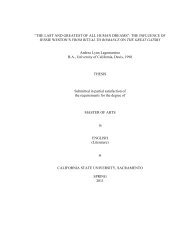Complete Thesis_double spaced abstract.pdf
Complete Thesis_double spaced abstract.pdf
Complete Thesis_double spaced abstract.pdf
Create successful ePaper yourself
Turn your PDF publications into a flip-book with our unique Google optimized e-Paper software.
Cornelius 2001; Crush 2002; Fitzgerald 2006). Cornelius (2001) believes that at times receiving<br />
states have very liberal immigration policies towards highly skilled migrants and low skilled<br />
migrants making it nearly impossible for a sending state to control or influence emigration. A<br />
second related issue is the relatively less examined ‘brain push.’ Brain push is the emigration of<br />
highly skilled workers due to political instability, restrictions on individual liberties, or lack of<br />
opportunities provided by the source country (Baldwin 1970; Campos and Lien 1995; Torbat<br />
2002).<br />
Theories of Economic Modernization and Violence<br />
While the migration literature does not have a common unifying theory of migration, the<br />
literature does offer several distinct theories, frameworks, and approaches that are<br />
complimentary; these frameworks, approaches and theories can be combined and utilized to<br />
examine migration in a variety of settings. Theories and frameworks describing the processes of<br />
economic development, political violence and intra and interstate migration are presented in the<br />
following sections. Theories, frameworks, and approaches from Paige (1975), McCreery (1994),<br />
Morrison and May (1994) and Hamilton and Chinchilla (1991) are used to assemble a<br />
comprehensive framework for examining Guatemalan migration.<br />
Theories of economic modernization and violence are abundant in the literature; most<br />
often the theories and case studies focus on the modernization of a society’s agricultural sector<br />
and the probability or the occurrence of revolution or rebellion (violence) from the peasant<br />
classes directed at the elites or the state. Theories and case studies describing economic<br />
modernization and violence perpetrated by the state, prior to revolution or rebellion, are less<br />
common in the literature. Jeffery Paige (1975) in Agrarian Revolution offers a simplified theory<br />
of agrarian revolution with a role for the state. He explains that agricultural development, or the<br />
29



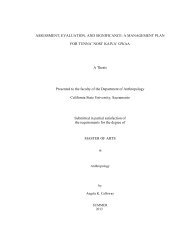
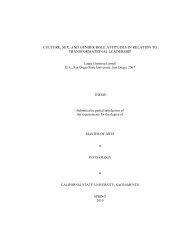
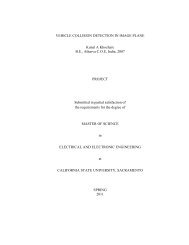
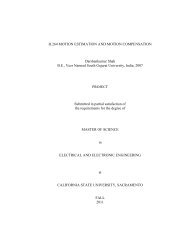
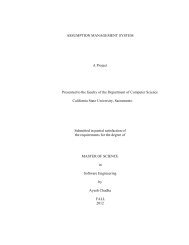
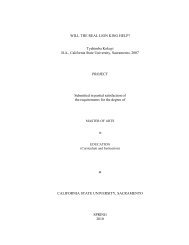
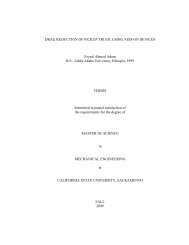
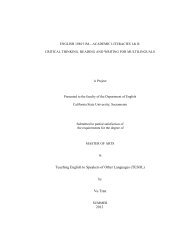
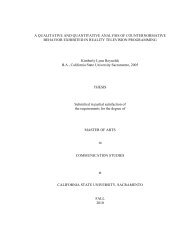
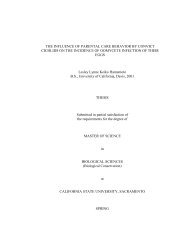
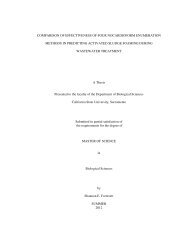
![Completed Thesis to Grad Studies[Final3].pdf](https://img.yumpu.com/17538645/1/190x245/completed-thesis-to-grad-studiesfinal3pdf.jpg?quality=85)
